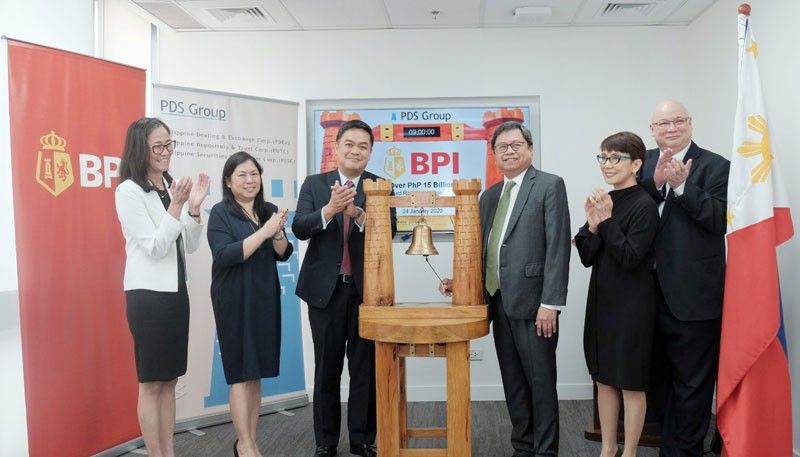BPI relies on organic growth amid scarce M&A prospects

MANILA, Philippines — Ayala-led Bank of the Philippine Islands (BPI), the oldest bank in Southeast Asia and the country’s third largest private lender in terms of assets, is banking on organic growth amid the lack of merger and acquisition (M&A) opportunities in the sector.
Cezar Consing, president and chief executive officer of BPI, told The STAR the bank would continue to grow its business organically with the lack of opportunities for M&As.
“Our base case is always to grow organically. We will look at acquisition opportunities if they arise, but in the last several years there has been little meaningful bank M&A activity,” Consing said.
He pointed out the bank has enough war chest to pursue M&As.
“Our capital position allows for acquisitions - although as I said previously the opportunities haven’t been there – and makes unnecessary the need for new strategic partners,” he added.
BPI’s total assets went up by 5.7 percent to P2.21 trillion last year, while its equity reached P269.58 billion, with an indicative common equity tier 1 ratio of 15.17 percent and capital adequacy ratio of 16.07 percent.
Consing said the bank would continue to grow its earnings through higher loan disbursements across all segments particularly small and medium enterprises (SMEs).
“We are hoping to grow net income by increasing lending across all business segments, with particular emphasis on SME, consumer and microfinance. Thus, growth in aggregate demand – investment, consumption – will be the key driver,” the bank president said.
The net income of BPI jumped 24.8 percent to a record high of P28.8 billion last year from P22.42 billion in 2018 on the back of strong interest and non-interest earnings.
The bank’s loan book grew 8.9 percent to P1.48 trillion, driven primarily by consumer loans that increased by 13.4 percent, while corporate and SME loans went up by 7.9 percent and 5.8 percent, respectively.
BPI’s deposit base increased by 6.9 percent to P1.7 trillion, while the bank’s current account and savings account (CASA) ratio stood at 69.1 percent, while the loan-to-deposit ratio was at 87 percent.
Consing, who is also president of the Bankers Association of the Philippines (BAP), the country’s banking sector would continue to grow at a steady pace of around 10 percent in support of the overall economic growth.
“I don’t think the industry-wide trading gains of 2019 will be repeated this year, which means that banks have to do more core intermediation to grow net income,” he said.
Consing said further reduction in the reserve requirement ratio (RRR) by the Bangko Sentral ng Pilipinas (BSP) would further boost the capacity of Philippine banks.
“The regulatory risks are balanced to the upside, with the BSP’s plan to continue to reduce reserve requirements being the prevailing theme. I am hopeful that government and regulatory initiatives serve to increase banking capacity, rather than reduce it. Our country needs more banking capacity if we are to achieve our national growth objectives,” he added.
BSP Governor Benjamin Diokno has committed to lower the RRR to single digit level by the middle of 2023 to reduce intermediation costs. The regulator last year slashed the RRR for big and mid-sized banks by 400 basis points and for small banks by 200 basis points freeing up P450 billion to boost economic acitivity.
The country’s oldest bank has been tapping both the onshore and offshore debt markets to raise funds to finance its expanding loan portfolio. It raised P15.3 billion via the issuance of two-year fixed rate bonds last month
“We will continue to tap the domestic and international debt markets to diversify our funding sources and support the growth of our lending business. The actual amounts will depend on the kind of growth that we are seeing. If growth continues to be good, we’ll be an active issuer,” Consing said.
- Latest





























